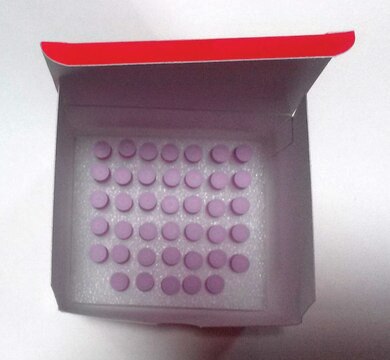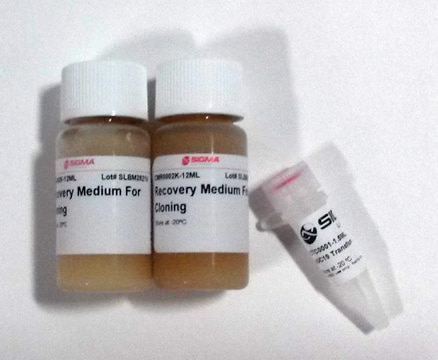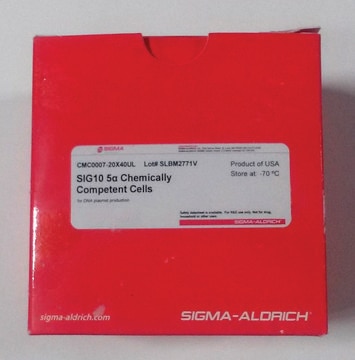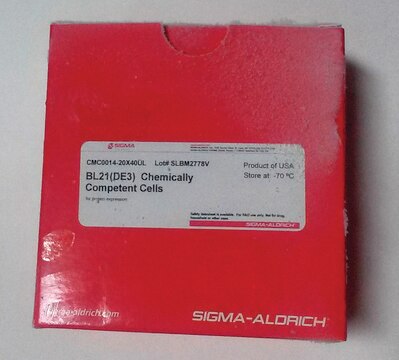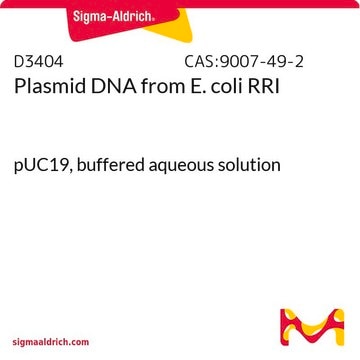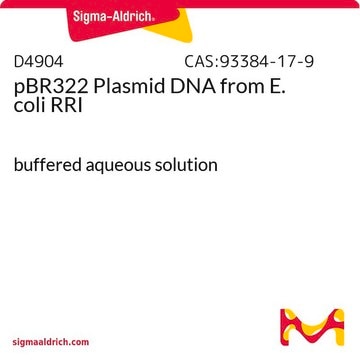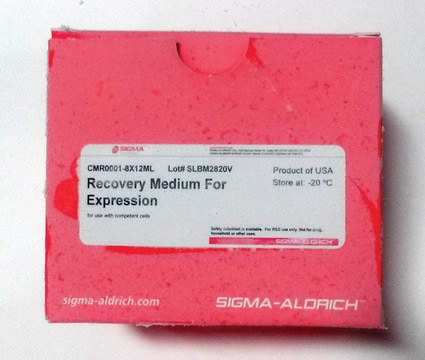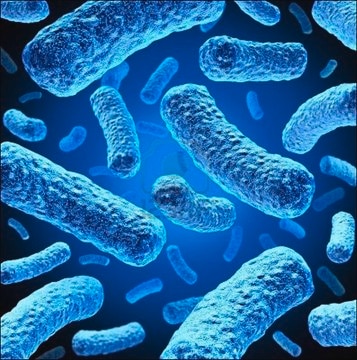CMC0004
SIG10 MAX Electrocompetent Cells
Escherichia coli, rod shaped
About This Item
Recommended Products
product name
SIG10 MAX Electrocompetent Cells, for general cloning & library production
biological source
Escherichia coli
grade
for molecular biology
form
buffered aqueous suspension
growth mode
adherent or suspension
morphology
rod shaped
technique(s)
microbiological culture: suitable
cell transformation
competent cell type: electrocompetent
transformation efficiency: ≥2 x 1010 cfu/μg
shipped in
dry ice
storage temp.
−70°C
Related Categories
General description
Genotype
F- mcrA Δ(mrr-hsdRMS-mcrBC) endA1 recA1 Φ80dlacZΔM15 ΔlacX74 araD139 Δ(ara,leu)7697galU galK rpsL nupG λ- tonA (StrR)
Features and Benefits
- share the most useful genetic elements of standard cloning strains like DH5a, DH10B, JM109, TOP10, etc. and directly replace them in cloning protocols.
- incorporate a unique manufacturing technology that increases transformation efficiency, recombinant yields and reliability.
- provide solutions for a wide range of applications at economical prices.
- Blue - white screening
Components
- SIG10 MAX electrocompetent cells
- pUC 19 transformation control DNA
- recovery medium for cloning
related product
wgk_germany
WGK 3
Certificates of Analysis (COA)
Search for Certificates of Analysis (COA) by entering the products Lot/Batch Number. Lot and Batch Numbers can be found on a product’s label following the words ‘Lot’ or ‘Batch’.
Already Own This Product?
Find documentation for the products that you have recently purchased in the Document Library.
Articles
Bacterial transformation is a process of horizontal gene transfer by which some bacteria take up foreign genetic material (naked DNA) from the environment. Bacteria that can take up free, extracellular genetic material are known as competent cells.
Our team of scientists has experience in all areas of research including Life Science, Material Science, Chemical Synthesis, Chromatography, Analytical and many others.
Contact Technical Service